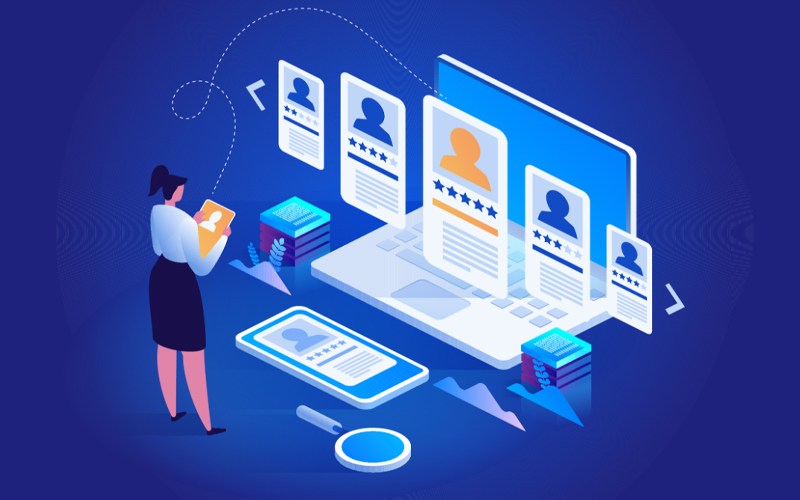Artificial Intelligence (AI) is involved in various tasks such as sorting photos on phones, providing personalized recommendations, supporting decisions in the financial sector, and enhancing healthcare by assisting in diagnostics, treatment planning, and personalized patient care. However, the healthcare sector has seen the biggest impact of AI applications, from streamlining clinical and administrative processes to delivering advanced diagnostics in healthcare settings.
Automation and AI applications in healthcare
AI tools can collect, organise, and analyse large amounts of patient data, which has resulted in transformative breakthroughs in addressing some of the more complex healthcare challenges. This has not only improved patient outcomes but also added a more personalised touch to patient care and improved the overall patient experience and interactions with healthcare staff.
From streamlining clinical processes and automating administrative tasks to simplify patient experience to identifying patterns to diagnose diseases before the symptoms become apparent or trained physicians and radiologists can spot them. Doctors have been increasingly using AI-powered solutions to identify diseases sooner, predict the risk of future events, and improve patient outcomes by catching diseases early.
Another example of AI applications in healthcare is in disease management, where AI-powered solutions like sophisticated monitoring devices and apps are helping doctors monitor patients in real-time. This not only helps patients and doctors better manage chronic conditions but also helps bring personalisation to the forefront of patient care for better outcomes.
Business process management in healthcare
Healthcare professionals often have to rely on external partners when understanding, implementing, and managing the technology supporting advanced diagnostics in healthcare. This is where Business Process Management (BPM) in healthcare comes into the picture, helping streamline every touchpoint and interaction between the patients and the healthcare system. The ways modern healthcare organisations can leverage BPM services to deliver efficient and patient-centric care include:
- Streamline clinical processes
- Automate administrative tasks
- Simplify compliance
- Ensure scalability and adaptability
- Enable seamless cross-departmental coordination
- Enhance patient engagement
These are some of the fundamental things that healthcare organisations can do to meet the evolving needs, expectations, and demands of patients. Patients are no longer happy with passive curative care but seek a personalised and engaging healthcare experience while receiving preventive care. AI-powered diagnostics and BPM have emerged as powerful tools to harness the prowess of patient data and meet these expectations by streamlining clinical processes and enhancing patient engagement in highly dynamic healthcare environments.
BPM for patient-centric care
Apart from improving diagnosis efficiency and speed, different AI applications in healthcare are also playing a key role in delivering personalised patient-centric care. From appointment management to tracking patient preferences for medication delivery and individual side effects, AI and deep learning models have great potential for supporting patient-centric care when it comes to managing chronic diseases. Business process management in healthcare has proven to be an effective tool for optimising different clinical processes, tracking key health parameters, enhancing communication between doctors, patients, and their caregivers, and delivering truly personalised medical care.
The evolving telemedicine techniques, sophisticated monitoring tools, and hyper-automation are contributing to the advanced diagnostic capabilities of AI in healthcare. However, the healthcare industry must overcome some challenges to achieve truly personalised care with AI, including:
- The need for complementary innovations connecting AI tools to healthcare applications
- Need for data interoperability and representation
- Ensuring representative and unbiased training data for AI models
- Secure, responsible, and ethical use of patient data
However, despite these challenges, advanced AI applications are already augmenting physicians' ability to deliver patient care, assisting healthcare professionals to diagnose and decide the treatment plan. As the technology continues to develop, AI-powered advanced diagnostics will allow doctors to diagnose and manage diseases very differently than they do today, allowing them to pinpoint the root cause of an ailment, predict its progression, and determine the best course of action to prevent or treat it.
How can Infosys BPM help?
As AI-powered diagnostics is transforming the modern healthcare landscape, has emerged as a solution to help healthcare organisations meet the evolving demands of patients. Infosys healthcare BPO services can help healthcare organisations transform their operating models, standardise processes, and improve patient outcomes. From digital data analytics to AI-driven treatment personalisation, Infosys BPM end-to-end healthcare offerings can help you leverage AI applications in different facets of healthcare, enhance patient experience, and improve patient outcomes.








